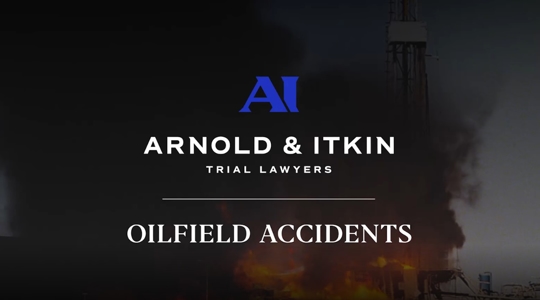Still early in its development, its actual value may not be known for years to come. Some experts describe it as one of the most abundant natural gas reserves ever discovered in the region. However, most experts agree that it is too early to tell what its productive output will be. The Haynesville Shale is a "tight" formation meaning that the rock is not very porous and so gas is not easily extracted from it. Until recently, the tight shale formation was not considered viable for production of natural gas in commercially viable volumes.
New Drilling Techniques for the Haynesville Shale
Vertical wells that drill straight into the ground have been the mainstay of the industry for decades. However, the recent developments of hydraulic fracturing and horizontal drilling techniques have made the production of natural gas more viable. Hydraulic fracturing employs high-pressure water pumped down into the well to fracture the rock and release gas. Horizontal drilling methods expose more of the shale and natural or induced fractures to the borehole, thereby allowing the well to produce more natural gas. Drilling likely will shift from the long common vertical wells to more expensive horizontal wells that are costlier to produce but more productive in "tight" formations.
Potential Negative Impacts on the Community
As landmen representing oil and gas operators overwhelm county courthouses in the region, and landowners sign oil and gas leases then wait for royalties to start pouring in, some are concerned about the potential for negative impacts to the environment, their property values, and the community as a whole. Some are already predicting that land values in the city could fall and that homeowners should expect reductions in the value of their homes for drilling activity that may be, quite literally, in their backyards. Truck and heavy equipment traffic have already increased dramatically in some communities, and noise levels from the rigs are a nuisance to some that are barely tolerable.
There is also the possibility of environmental damage from oil and gas drilling operations.
For example, it can take millions of gallons of water to drill and finish a well using hydraulic fracturing techniques. Worse, the byproduct, often full of salt, hydrocarbons, and fracturing fluids has to be disposed of somewhere. The most popular method in use is, unfortunately, another well called an "injection well" into which the saltwater is injected for disposal. The process can lead to unintended consequences including surface and water contamination. Already, one Texas community has had to fight for clean drinking water after a saltwater injection well poisoned the water supply.
Representing Workers Injured in the Haynesville Shale
Oil and gas workers are among the most at-risk workers in the entire United States. Oilfield work has a tendency to be a high-stakes game: it can make people a great deal of money...or it can leave them physically and financially ruined. We've seen far too many people who were left in debt and without a future because their employer was careless about their safety, resulting in land rig explosions, equipment malfunctions, or gas truck accidents.
When people need a way to get their lives back to normal, when they need to rebuild their lives, they call Arnold & Itkin.
Our firm helps oilfield workers who have been injured in the Haynesville Shale get the money they need to pay off debt, pay for medical treatment, and replace the paychecks they've lost as a result of their accident. All you need to do is pick up the phone (or send us a short message in the form below).
Contact a Houston oil and gas lawyer to learn more about your options. Call Arnold & Itkin at (888) 493-1629.
